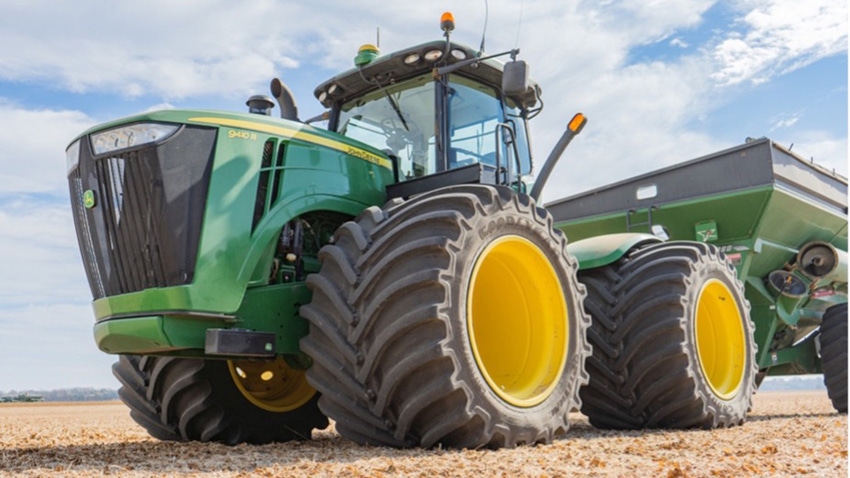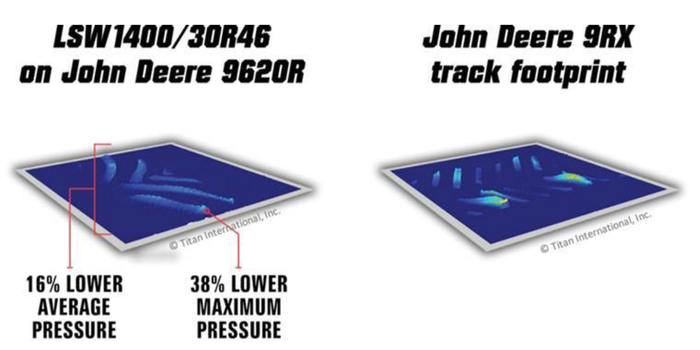April 15, 2024

If you attend a farm equipment show these days, chances are you'll hear someone talking about flotation and compaction.
Those conversations reflect a growing awareness of the impact that today's heavier, more powerful machinery can have on soils — and yields.
Many farmers think of flotation and compaction as two sides of the same coin: When flotation goes up, compaction goes down, right? Not necessarily.
Flotation is a function of the total contact area, or footprint, on the ground. The bigger the contact area, the greater the flotation.
But flotation doesn't take into account weight distribution. When weight isn't evenly distributed over the footprint, the real issue is compaction.
Compaction is a result of the actual pressure being applied to the ground, the downward force that actually compacts the soil.
As Titan Ag Specialist Travis Lamb points out, "When you only consider flotation, it's easy to understand why farmers looked to tracks. When you factor in compaction, though, you can start to see why more and more farmers are choosing Titan Goodyear Low Sidewall Technology® (LSW®) super single tires instead of tracks."
Real-World Implications
Putting tracks on a tractor or combine can increase its footprint, and compared to duals, it does help spread the load. However that load is anything but uniform: areas below the bogey wheels, for example, are subject to higher pressures than the rest of the track.
Titan research, conducted with a prominent university, showed that soil compaction at 0–6" depth was 25% greater for tracks than for LSWs.
Similarly, using pressure sensor technology to measure compaction pressure, Titan research found that the force exerted on the ground went from a peak of 187 psi for the LSWs to 300 for the tracks — an increase of more than 40%.

Photo submitted by Titan & Goodyear Farm Tires
"You can imagine what that does to yields," noted Travis Lamb. "When you factor in an initial cost difference of $100,000 or more, plus the higher weight and increased maintenance and operational costs of tracks, going with the LSW super singles is almost a no-brainer. The advantages the LSWs offer in comfort and road speed (25 to 30 mph versus 20 for tracks) are just icing on the cake."
To learn more about Titan Goodyear LSW super single tires, contact your Titan Goodyear Farm Tire dealer or visit https://www.titan-intl.com/supersingles.
You May Also Like





